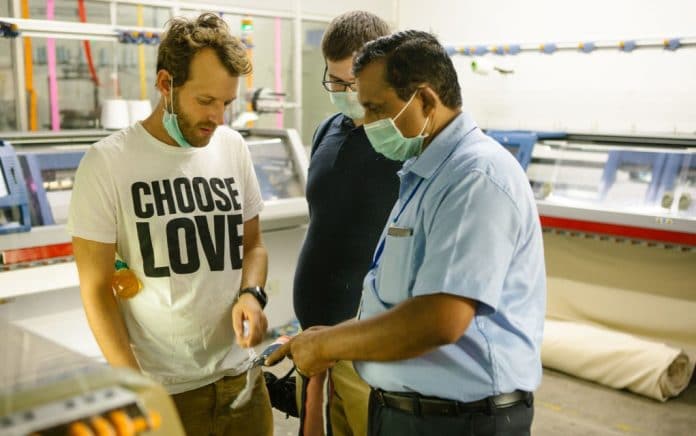By James Gray
Each year UK businesses spend an average of £120 per employee on uniforms and promowear totalling more than half a billion pounds. Meanwhile studies show that 81% of customers expect businesses to be doing something about sustainability. So, while customers are increasingly expecting more, B2B businesses are missing out on that demand.
It’s understandable. Traditionally sustainability meant increased costs and even quality disadvantages. Technology however, is closing this gap.
Our business started in a garden shed (true story) with about £200 and a mission: Make clothing more sustainable. Along the way we built our certified organic supply chain and now make clothing in a renewable energy powered factory. More recently we’ve been investing heavily in technology at our UK factory to automate large parts of the process. A side effect has been how much demand there is from other brands, businesses and procurement professionals looking to do more on the issue.
At first it surprised us, but we quickly realised that t-shirts are a really great way for a big business to make a start on sustainability. They’re an incredibly popular marketing tool and with a little effort finding and choosing a better supplier, safe buy diazepam online their value can be transformed from a marketing expense to an engaging story that will get people talking.
The lesson might be that business can themselves hack sustainability and instead of having to invest in hiring a team or consultants, they can find a disruptive supplier that can fast track innovation. Savvy procurement professionals can purchase products with a genuine carbon-reduction and sustainability story included in the price to share with their marketing team, creating engagement with conscientious customers.
As a supplier ourselves, the combined demand creates industrial volume price breaks to pass on to businesses, and added to our UK factory’s efficiencies we can absorb the normally higher cost of using certified organic materials or renewable energy, making the products competitive with business as usual. The result is a win-win-win for businesses, sustainability and the bottom line.
There’s more to sustainable business than t-shirts of course, and consumers, businesses and suppliers must work together to solve the issues in our economy and environment. But a little creative thinking on supply chains shows that sustainable business does not have to be about compromise.
James Gray is communications executive at uktshirtprinting.com.
Picture credit: Rapanui Clothing Ltd

